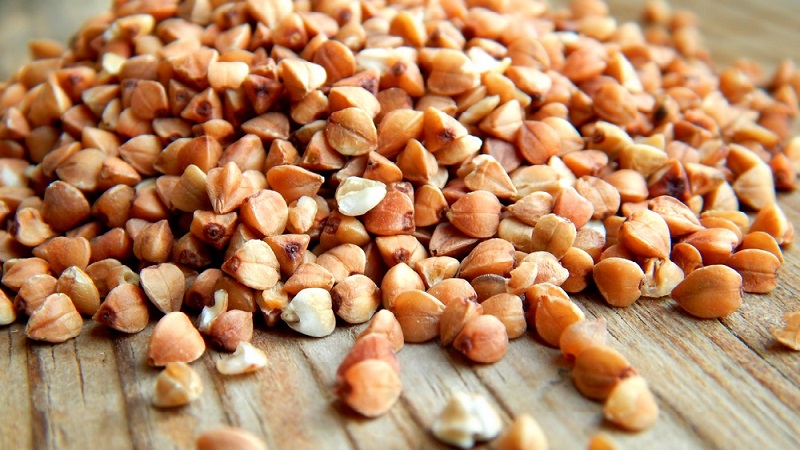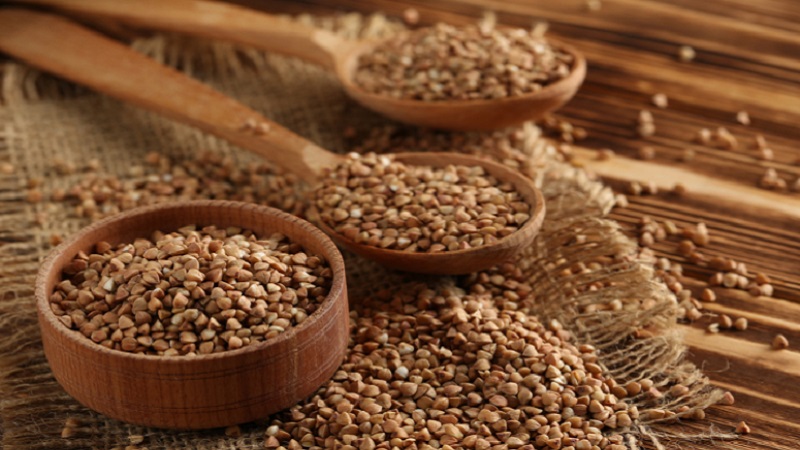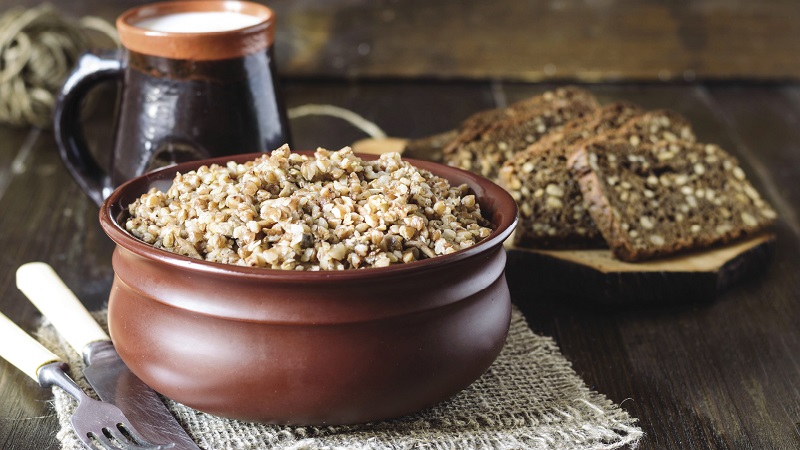Can adults be allergic to buckwheat?
Allergy to buckwheat is not a very common pathology, especially in adult patients, since there is no gluten in cereals. But individual intolerance still happens. Unaware of the problem, the patient can consume buckwheat for years until a mild allergic reaction at some point develops into throat swelling or serious neurological problems. Let's figure out whether buckwheat is an allergenic product or not.
The content of the article
Buckwheat as an allergenic product

Buckwheat is a dietary product, the basis of nutrition for diabetes, metabolic disorders, and kidney diseases. During pregnancy and breastfeeding, women are one of the first to introduce this cereal into the diet, since it is considered safe.
But people suffering from any form of allergy should use buckwheat with caution, as it belongs to the middle category of allergens. This means that an allergy to porridge or a side dish can manifest itself at any time. The danger is that buckwheat as a cause of deterioration in health can be considered by the patient at the last moment, while continuing to use his favorite product.
Characteristics and description of the allergen
Allergy to buckwheat - rejection of proteins by the body. With such a disease, the immune system perceives any food protein as foreign, and the body does not assimilate it.
Proteins in cereals are about 19%. If the body does not accept vegetable proteins, the allergic reaction to buckwheat will be strong.
Can I be allergic to green buckwheat? Yes, it contains even more protein than brown - 14 g versus 12 g.
Reference. A negative reaction of the body will manifest itself if the cereal was not stored correctly and it is infected with molds - the most powerful causative agents of allergic reactions. In addition to mold, there are insect residues in the product of poor quality, also acting as an allergen.
Causes of allergy to buckwheat

A sudden negative reaction to eating healthy cereals is caused by several reasons:
- too frequent use of buckwheat;
- working with a dry product - constant inhalation of dust, for example, when packing cereals;
- pillows filled with buckwheat husks;
- if the patient has negative reactions to whole milk, any nuts, meat or legumes, a cross-reaction may occur;
- a genetic predisposition to plant protein allergy.
To understand that the reaction is going to cereals, you need to keep a food diary and register in it all the deterioration of the condition associated with food.
Allergy formation mechanism
The mechanism behind a negative reaction to a particular product is complex. When an allergen - what the immune system perceives as something foreign - enters the body for the first time, it produces antibodies that remove the “enemy” from the body.
Antibodies are special protein substances that are produced by the immune system against a specific allergen (food, book dust, mold, hair of cats or dogs, etc.).
There is a primary defense reaction:
- a spasm in the throat;
- pulmonary edema;
- tears;
- sneezing and coughing.
The next time the allergen enters the body, the reaction can be either positive due to habituation, or negative - the reaction intensifies.
Buckwheat allergy symptoms

In some cases, a person may not feel any negative manifestations for several weeks in a row, except for dizziness and weakness. But there are typical symptoms that are typical for almost all manifestations of allergies:
- skin rash;
- diarrhea;
- swelling of the throat;
- spasm of the lungs.
The reaction that occurs after inhaling buckwheat dust is cough, conjunctivitis, lacrimation, swelling of the mucous membrane, redness of the skin, especially in the eyes and lips.
The atypical symptoms common to adults include:
- the occurrence of a severe allergic rhinitis, which is accompanied by incessant sneezing;
- abdominal cramps;
- diarrhea, increased gas production;
- shortness of breath, dryness and sore throat, loss of voice or hoarseness;
- nausea and urge to vomit;
- head and joint pain, similar to pain in acute respiratory infections;
- irritability, anxiety;
- sleep disturbance - the patient wakes up in the middle of the night and cannot fall asleep;
- painful sensations when swallowing.
Many of these symptoms, including extreme fatigue and an inability to concentrate on work, may be mistaken for people with a cold. Ignored allergies lead to nosebleeds, nausea and vomiting, weight loss and anemia.
It is interesting:
Are babies allergic to buckwheat
Is it possible to eat buckwheat with milk: what are the benefits and harms of such a combination
How buckwheat affects the blood: thickens or liquefies, and can it be eaten with high cholesterol
Cross shape

Allergy to buckwheat is very rare. Most often it is triggered by the body's reaction to some other product (cross reaction):
- nuts;
- milk;
- meat (mainly beef);
- avocado.
The allergens present in them are similar to the allergens in buckwheat. After eating porridge, at some point, a person who has not previously suffered from a negative reaction to buckwheat may experience severe allergies.
Allergy diagnostics
To ensure the detection of an allergen, an ELISA test is performed - an analysis for the amount of immunoenzymes in the body.
Also, for diagnosis, the doctor may advise:
- follow a certain diet and keep a food diary;
- conduct provocative tests: a small amount of allergens are introduced into the body and the reaction is assessed.
How to treat buckwheat allergy in adults

During treatment, foods that cause a negative reaction are excluded from the diet, antihistamines are prescribed and a rigid diet is temporarily prescribed:
- If the reaction is mild, it is enough to exclude any dishes with buckwheat from the diet.
- If the reaction is severe, accompanied by a headache, rash, mucosal edema, intestinal upset, antihistamines are prescribed in the form of tablets, ointments or drops.
The most popular remedies are Claritin, Tavegil, Desitin ointment.
Reference. Treatment is carried out only under the supervision of a doctor, since many antihistamines cause unpleasant side effects - drowsiness, nausea, dizziness, anxiety.
If the allergy to buckwheat is very severe, the doctor prescribes hormonal agents.
Prevention measures
Allergies cannot be treated with drugs - drugs only relieve symptoms. To prevent exacerbations, it is necessary to completely exclude the product causing a negative reaction from the diet..
For some time after the symptoms of allergy have subsided, it is important to follow a diet - reduce the content of protein products, milk and nuts in the menu.
Any dishes with buckwheat are excluded from the menu and pillows filled with cereal husks are not used.
Conclusion
Is buckwheat an allergen? Yes, cereal allergy is rare, but the consequences can be very serious, including swelling of the larynx and lungs, fainting and severe itching. At the first symptoms, it is important to consult a doctor for diagnostics and completely exclude buckwheat from the diet.